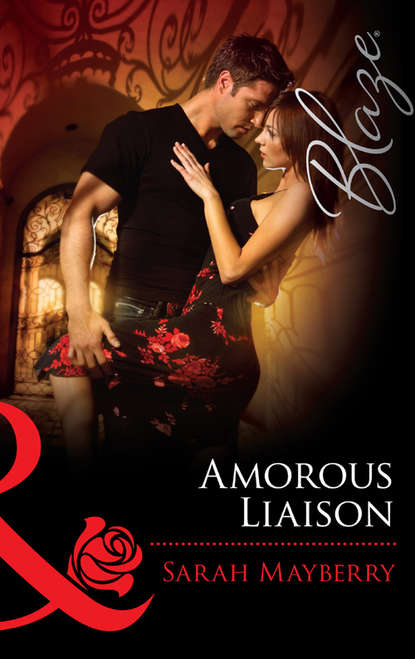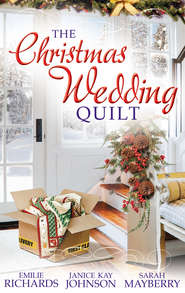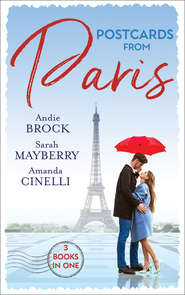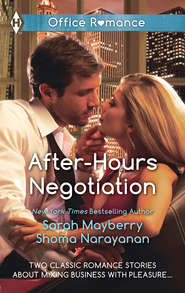По всем вопросам обращайтесь на: info@litportal.ru
(©) 2003-2025.
✖
Amorous Liaisons
Автор
Год написания книги
2018
Настройки чтения
Размер шрифта
Высота строк
Поля
“Admit it, you miss it,” he said, glad she’d dropped the whole gratitude thing.
Of course, willingly supporting his father didn’t stop the what-ifs from leaking out of his subconscious in the unguarded moments before falling asleep at night.
What if he’d been able to follow his dream and dance in London, New York, Moscow, Paris? Would he have made it, achieved soloist status and seen his name in lights?
And what would have happened with Maddy? Would he ever have told her how he felt? How much he loved her—and not just as her reliable friend and sometime dancing partner?
As always when he thought of Maddy, he pictured her on stage, standing in a circle of light, her small, elegant body arched into a perfect arabesque. Then came the memories of her as a woman, laughing with him on the ratty couch in the dump of a house they’d shared with two other dancers, or lounging on the back porch in the hot evening air.
False memories, he knew. Gilded by time and distance. Maddy couldn’t possibly be as funny, as warm and beautiful and sensual as he remembered her. He’d turned her into a symbol of everything he’d given up.
“So, what are you going to do now?” Charlotte asked as she slid a box across the worn parquetry floor to join the others he’d stacked against the wall.
He deliberately misunderstood her.
“Finish packing these boxes, then find someplace warm to have a cold demi of beer,” he said.
She rolled her eyes. “I mean next. What are you going to do now that you’ve got your life back?”
He shrugged, even as his thoughts flew to the apartment he’d rented in the Marais district across the river. His sister hadn’t seen it yet. It had been hell holding her off, and he would have to tell her his plans soon, but he wasn’t ready for her disapproval yet. He was still coming to terms with his own audacity himself.
“I haven’t really thought about it,” he lied.
Charlotte dusted her hands on her butt. “Well, you should. You could use Dad’s money to go to university, get a degree. Or put a deposit on a place of your own. Start making a life for yourself. Hell, you could even get a girlfriend. Really shake things up.”
It was Max’s turn to roll his eyes. “Why is it that married people always think that everyone else would be happier in a relationship?”
“Because it’s true. And you’re made to be a husband, Max. If any man should have children, it’s you. They’d be gorgeous, for starters. And talented. And smart and kind.”
“Why does it sound like you’re writing copy for a personals ad?”
“Relax. I haven’t stooped that low. Yet. But I do have some wonderful friends I’d love you to meet.”
“No.”
“Why not? Give me one good reason why you don’t want to meet an attractive, available woman?”
“I’ll find my own woman when I’m ready.” The truth was, the next twelve months were going to be challenging enough without adding a new relationship into the mix.
“For God’s sake. Surely you must want the sex, at the very least? How many years can a man survive on hand relief alone, anyway?” Charlotte asked.
He nearly choked on his own tongue. Half amused, half surprised, he stared at his sister. She was many things, but comfortable with earthy talk was not one of them.
“Hand relief? Are you serious?”
“What’s a better word for it? Happy ending? Spanking the monkey? Choking the chicken?”
He laughed because he couldn’t help himself. “Are you done yet?”
“Max, I’m serious,” Charlotte said.
He saw with surprise that there were tears in her eyes. “Look, your concern for my…um…monkey is sweet. I think. But I’m not going to discuss my sex life with my sister.”
“That’s because you don’t have one. And it’s such a waste, Max. I know women who would crawl over broken glass to get to you. Let me hook you up with one of them.”
He held up a hand. “Spare me the broken-glass crawlers. Please. And take my word for it that I have a sex life.”
He thought of Marie-Helen and Jordan, women he’d slept with on a casual basis over the years. He liked them both, he enjoyed the sex, but he was not compelled by either woman. That lack of engagement had been important in his former life, when all his energy had been focused on his father’s well-being.
“Well. I hope that’s true.” Charlotte studied his face. “I want you to have all the things you’ve missed out on.”
“I get that. Thank you,” he said. “Now, can we talk about something else? Anything else, in fact. Global warming? The extortionate price of tropical fruit?”
Charlotte let the subject go. They spent another two hours boxing up the library. By the time they exited the apartment, they were both dusty and weary.
“What time are you letting the dealer in tomorrow?” he asked.
“Around ten.”
They both stood on the threshold, glancing around the apartment that had been their father’s home, hospital and prison.
“Will you miss it?” she asked.
The apartment had been in their family for two generations. He could remember his grandmother serving Sunday meals in the dining room, the family gathered around. But he could remember more clearly his father’s pain and suffering.
“No. You?”
She shook her head. “Too many sad memories.”
He locked up for the last time and handed the key to his sister. They parted ways in the street and he walked two blocks to the Metro. After changing lines twice, he climbed the stairs of the St. Paul station and emerged into the weak afternoon sunlight.
It was early February, and he could see his breath in the air. He stopped to buy a bottle of wine and some fresh-baked bread on his way home. Then he let himself into the former shop that he’d leased on a cobblestoned side street of Le Marais.
His footsteps echoed as he made his way across a wide expanse of floorboards to the kitchen.
Normally a place the size of his loft would cost a mint to rent, but he’d managed to discover the last shitty, unrenovated hole in the upwardly mobile third arrondissement. What it lacked in ambience, hygiene and plumbing it gained in space. More than enough to accommodate his bed, a couch, an armchair, a kitchen table and all his workshop materials and leave him with plenty of room to fill with his art.
His art.
He studied the handful of small sculptures and the one full-size figure in bronze that stood next to his workbench.
For a long time he’d fooled himself into thinking that his sketches and small-scale sculptures were a hobby, mindless doodling to chew up the time between tending to his father’s needs and fill the hole that losing dancing had left. He’d always drawn and experimented with clay, ever since he was a kid. It was harmless, he’d figured, pointless.
But as his skill had increased, so had his drive to capture more and more of his ideas in clay, plaster, bronze—each time bigger and better than the time before. He’d pushed away the urge as it became more insistent, but when his father’s health had deteriorated a few months ago, he’d found himself thinking about what would happen after his father had found his peace. Max’s hands had itched as he imagined what he could do with his art if he had more time, more space, more energy.
The past eight years had taught him that life was never predictable, often cruel, and even more often capricious. Men plan and God laughs—he’d often thought the quote should be men dream and God laughs.
But he’d had a gutful of what-ifs. He’d had eight years of being on hold, in limbo, living for someone else.











